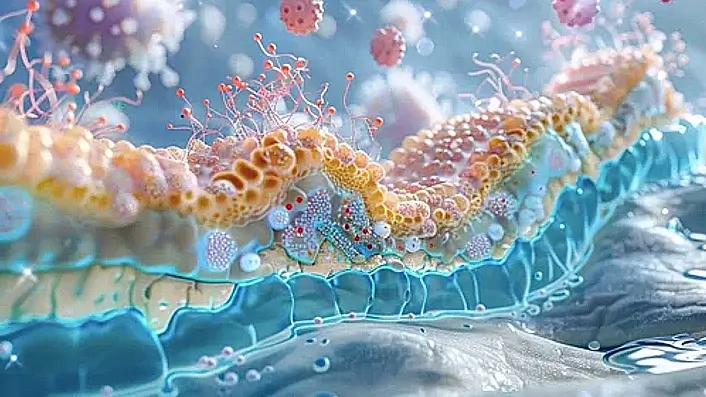Common Nutrient Deficiencies That Affect Liver Health

Understanding the Nutrient-Liver Connection
Nutrient deficiencies can significantly impact liver health, often exacerbating conditions such as non-alcoholic fatty liver disease (NAFLD) and cirrhosis. As the liver plays a central role in metabolism, detoxification, and nutrient storage, any imbalance in essential nutrients can compromise its function. This article explores the common nutrient deficiencies that affect liver health, shedding light on their clinical implications and potential interventions.
The Role of Micronutrients in Liver Function
Micronutrients are indispensable for enzymatic reactions, cellular repair, and metabolic pathways within the liver. Vitamins and minerals act as cofactors for enzymes involved in lipid metabolism, oxidative stress mitigation, and detoxification. Deficiencies in these nutrients disrupt these processes, potentially leading to liver dysfunction and systemic complications.
Vitamin D Deficiency: A Silent Aggravator
Prevalence and Effects on the Liver
Vitamin D deficiency is prevalent among individuals with liver diseases. Research indicates that low serum levels of vitamin D correlate with increased fibrosis and inflammation in NAFLD and alcoholic liver disease. The liver converts vitamin D into its active form, calcitriol, which modulates immune responses and prevents excessive inflammation.
Clinical Management
Supplementation with vitamin D has shown promise in reducing liver inflammation and improving insulin sensitivity. Regular monitoring of serum 25-hydroxyvitamin D levels is recommended for patients with chronic liver conditions.
Learn more about the role of vitamin D in liver health to explore recent studies.
Iron Imbalance: Too Much or Too Little
Iron Deficiency
Iron deficiency is common in individuals with chronic liver disease, particularly those with cirrhosis. This deficiency leads to anemia, fatigue, and reduced oxygen transport, further impairing hepatic function.
Iron Overload
Conversely, conditions like hereditary hemochromatosis result in excessive iron deposition in the liver, causing oxidative stress and hepatocellular damage. Balancing iron levels is crucial, as both extremes can exacerbate liver damage.
Clinical Recommendations
Iron supplementation should be approached cautiously and tailored to individual needs. Serum ferritin and transferrin saturation levels guide therapeutic decisions.
Zinc Deficiency: Implications for Detoxification
The Role of Zinc in Liver Health
Zinc is essential for enzymatic functions, immune regulation, and detoxification processes in the liver. Chronic liver disease often leads to zinc depletion, which exacerbates hepatic encephalopathy and immune dysfunction.
Dietary Sources and Supplementation
Rich sources of zinc include seafood, nuts, and legumes. For individuals with liver disease, zinc supplementation may improve ammonia metabolism and overall hepatic function. However, long-term supplementation requires careful monitoring to avoid adverse effects.
Vitamin B12 and Folate: Guardians Against Anemia
B12 and Folate Deficiency in Liver Disease
Vitamin B12 and folate deficiencies are common in individuals with advanced liver disease. These deficiencies contribute to anemia, neurological symptoms, and impaired DNA synthesis, further complicating liver conditions.
Addressing Deficiencies
Oral or intramuscular supplementation of vitamin B12 and folate can effectively address these deficiencies. Incorporating fortified foods and leafy greens into the diet supports overall health.
Antioxidants: Vitamin E and Selenium
Combating Oxidative Stress
Oxidative stress is a hallmark of many liver diseases, including NAFLD and viral hepatitis. Vitamin E and selenium act as potent antioxidants, protecting hepatocytes from damage caused by free radicals.
Evidence-Based Benefits
Clinical trials have shown that vitamin E supplementation can reduce hepatic steatosis and inflammation in NAFLD patients. Selenium, a cofactor for glutathione peroxidase, enhances detoxification pathways and mitigates oxidative stress.
Caution in Use
While supplementation can be beneficial, excessive doses may have adverse effects. Medical supervision is crucial to ensure safe and effective use.
Protein Deficiency: A Key Factor in Malnutrition-Associated Liver Disease
Protein’s Role in Liver Health
Protein is vital for liver repair, detoxification, and maintaining lean body mass. Protein deficiency, often seen in malnourished individuals with chronic liver disease, exacerbates muscle wasting and hypoalbuminemia.
Dietary Recommendations
High-quality protein sources, such as eggs, fish, and legumes, are recommended. In severe cases, medical-grade protein supplements may be necessary to meet nutritional needs.
Omega-3 Fatty Acids: Anti-Inflammatory Allies
Benefits for Liver Health
Omega-3 fatty acids, found in fatty fish and flaxseeds, have anti-inflammatory properties that benefit individuals with NAFLD. These fatty acids reduce hepatic triglyceride accumulation and improve lipid metabolism.
Supplementation Guidelines
Clinical studies suggest that omega-3 supplementation may lower liver fat content and improve metabolic profiles. However, the dose and duration of supplementation should be personalized based on clinical evaluation.
Magnesium: Supporting Cellular Function
Magnesium and Liver Metabolism
Magnesium is involved in over 300 enzymatic reactions, including those crucial for liver metabolism. Deficiency is associated with insulin resistance, a key driver of NAFLD.
Dietary Sources and Needs
Magnesium-rich foods, such as whole grains, nuts, and leafy greens, support liver health. Supplementation may be necessary for individuals with severe deficiencies or malabsorption issues.
Strategies to Address Nutrient Deficiencies
Nutritional Assessment
A comprehensive nutritional assessment is essential for identifying deficiencies in individuals with liver disease. Biomarkers, dietary history, and clinical evaluation guide personalized interventions.
Tailored Supplementation
While dietary modifications are the first line of intervention, targeted supplementation is often required. Multivitamins and specialized nutrient formulations can address multiple deficiencies effectively.
Monitoring and Follow-Up
Regular monitoring of nutrient levels ensures the effectiveness of interventions and prevents potential toxicities associated with over-supplementation.
Conclusion
Addressing common nutrient deficiencies that affect liver health is integral to managing and preventing liver diseases. Through a combination of dietary interventions, targeted supplementation, and regular monitoring, healthcare professionals can mitigate the impact of these deficiencies on hepatic function. By prioritizing nutritional health, patients with liver conditions can improve their overall quality of life and clinical outcomes.
Share this article

Dr. Nikko Theodore Raymundo, MD
Dr. Nikko Raymundo is a specialist in Internal Medicine and Gastroenterology, based in Metro Manila. See Full Bio.
-
1. Wu J., Meng Q.H. Current understanding of the metabolism of micronutrients in chronic alcoholic liver disease. World J. Gastroenterol, 2020.
-
2. Bugianesi E., Leone N., Vanni E., Marchesini G., Brunello F., Carucci P., Musso A., De Paolis P., Capussotti L., Salizzoni M., et al. Expanding the natural history of nonalcoholic steatohepatitis: From cryptogenic cirrhosis to hepatocellular carcinoma. Gastroenterology, 2002.
-
3. Bjelakovic G., Nikolova D., Bjelakovic M., Gluud C. Vitamin D supplementation for chronic liver diseases in adults. Cochrane Database Syst. Rev, 2017.
-
4. Saeed A., Bartuzi P., Heegsma J., Dekker D. Kloosterhuis, N.; de Bruin, A.; Jonker, J.W.; van de Sluis, B.; Faber, K.N. Impaired Hepatic Vitamin A Metabolism in NAFLD Mice Leading to Vitamin A Accumulation in Hepatocytes. Cell. Mol. Gastroenterol. Hepatol, 2021.
-
5. Udomsinprasert W., Jittikoon J. Vitamin D and liver fibrosis: Molecular mechanisms and clinical studies. Biomed. Pharmacother, 2019.
-
6. Strople J., Lovell G., Heubi J. Prevalence of subclinical vitamin K deficiency in cholestatic liver disease. J. Pediatr. Gastroenterol. Nutr, 2009.
The Impact of Omega-3s on NASH Progression A few years back, a patient of mine, a middle-aged man with a fondness for fatty foods and minimal interest in...
Sweet Chili Salmon Bowls When it comes to managing liver health, finding a balance between delicious meals and healing nutrients can often be a...
Basic Nutrition Knowledge Quiz Grasping fundamental nutrition principles is crucial for everyone, particularly for those dealing with fatty liver disease.

You might enjoy more articles by
Dr. Nikko Theodore Raymundo, MD
 Disease
Disease Diets
Diets Recipes
Recipes Supplements
Supplements Management
Management Calculators
Calculators Quizzes
Quizzes Glossary
Glossary

















